by Alejandra Molina, RNS | Jan 12, 2022 | Commentary, Headline News |

LOS ANGELES (RNS) — The Rev. Al Sharpton, speaking at the funeral of the 14-year-old fatally shot by a Los Angeles Police Department officer, recalled coming to Los Angeles 30 years ago to protest the beating of Rodney King by police.
“We keep seeing LAPD get it wrong. And here we are again. How long will it take for you to get it right?” Sharpton asked.
Valentina Orellana Peralta was with her mother, Soledad Peralta, on Dec. 23 in the dressing room of a Burlington clothing store in the San Fernando Valley’s North Hollywood neighborhood when, according to news reports, LAPD officer William Dorsey Jones Jr. fired at a 24-year-old man identified as Daniel Elena Lopez, who had been assaulting a woman in the store. The officer’s shots killed Lopez, and Valentina was also killed when one of the bullets went through a wall.
Both the girl and her mother had come to the United States from Chile.
Sharpton, on Monday (Jan. 10), eulogized Orellana Peralta, who was displayed in a pink dress inside a flower-draped casket during her funeral at City of Refuge, United Church of Christ in Gardena, near Los Angeles.
Today I’m eulogizing 14-year-old #ValentinaOrellanaPeralta who was killed by a LAPD stray bullet as she shopped for a Christmas dress. I’m praying for her parents and loved ones and we will seek justice in her name
 @rachelnoerd pic.twitter.com/NPyYj3lDhu
@rachelnoerd pic.twitter.com/NPyYj3lDhu
— Reverend Al Sharpton (@TheRevAl) January 10, 2022
“There is nothing normal about shooting so recklessly that a young teenage girl looking to live the American dream, that was shopping with her dear mother Soledad, possibly getting a Christmas dress, ends up being dressed for her funeral,” Sharpton said. “This could have been my daughter. This could have been your daughter.”
The shooting made international news when President Joe Biden called Chilean President-elect Gabriel Boric to congratulate him on winning his country’s election and during that conversation, “offered his deep condolences to the people of Chile for the tragic death” of Orellana Peralta.
Orellana Peralta was remembered as a happy teen who excelled in school, who was an advocate for animals and who yearned to become a U.S. citizen. Her father said she had dreams of becoming an engineer to build robots.
Sharpton, during the eulogy, said it was important to make it clear that “we don’t just fight for our own because we all are our own,” Sharpton said.
“Whether you are from South Central, Harlem, or Chile, right is right … If we call for justice for some, we must call (for) it for all, and I wanted to come 3,000 miles to say, ‘Justice for (Valentina)!’” Sharpton proclaimed.
Added Sharpton: “There are those … around America that talk about refugees coming to America, some from Chile, some from Central and South America, some from Mexico, and they ask me why I stand and fight for them to have rights. I fight for them to have rights because I worship a refugee from Bethlehem.”
“Jesus was a refugee, and you cannot despise refugees and then stand up and say you are a believer in Christ,” he said.
The Associated Press contributed to this report.
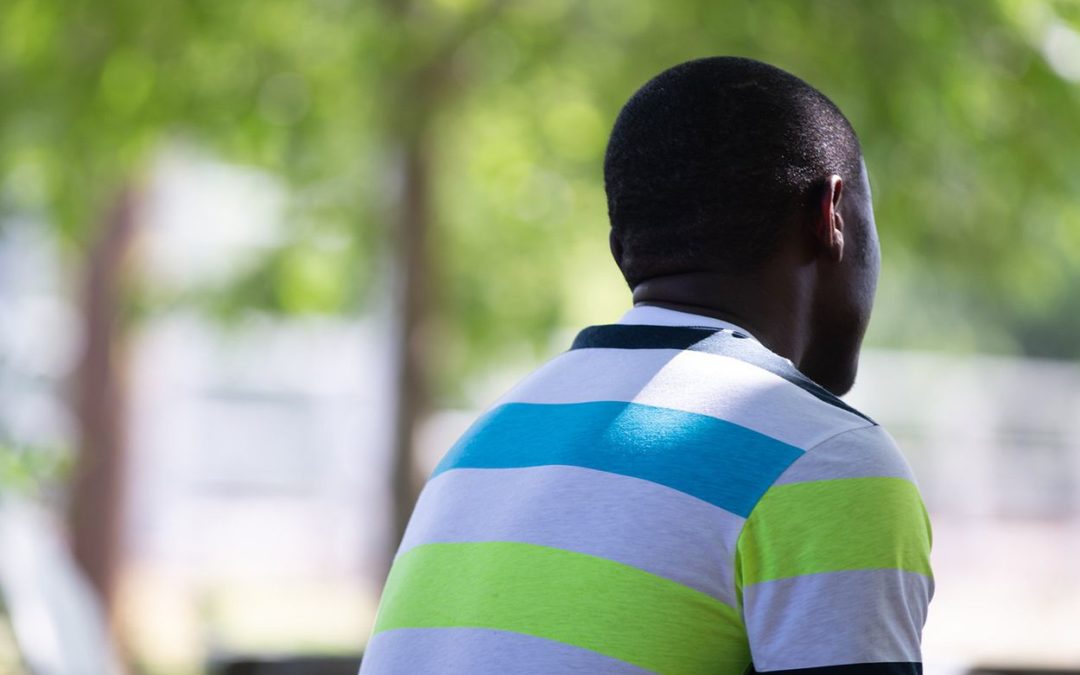
by Bob Smietana, RNS | Jan 11, 2022 | Commentary, Headline News |
MILWAUKEE (RNS) — Asher Imtiaz is the kind of person who always seems to be wandering into a great story.
Like the time in 2017, when the Pakistani American computer scientist and documentary photographer walked into a Target in Nebraska and ended up being invited to a wedding thrown by Yazidi refugees from the Middle East.
Imtiaz had gone to Nebraska to shoot pictures of life in small-town America in the age of Trump, far from the country’s urban centers. Among his portfolio from the time is another Yazidi family, dressed in patriotic garb and heading to a Fourth of July picnic.
“I went to see America and found these new Americans,” said Imtiaz at a coffee shop on the north side of Milwaukee last year.
Imtiaz fits right in at Eastbrook Church, a multi-ethnic congregation where he serves as a volunteer leader at an outreach ministry for international students at the University of Wisconsin-Milwaukee campus nearby.
Eastbrook is a bit of an outlier these days, a place where refugees, immigrants and international students are welcome at a time when American evangelicals are increasingly suspicious of newcomers to the United States.
According to data from the Public Religion Research Institute’s Immigration Policies Survey, nearly 6-in-10 (59%) white Evangelical Protestants agreed with the statement “Immigrants are invading our country and replacing our cultural and ethnic background.” By contrast, only 31% of Americans overall agreed with that statement.
At an outdoor service at Eastbrook in August, Imtiaz wandered through the congregation greeting friends and exchanging hugs as a diverse worship team led the congregation through a mix of traditional and contemporary songs. The service started with the singing of the traditional Doxology, which begins, “Praise God from whom all blessings flow,” followed by songs like “You Are Good” and “Way Maker,” by Nigerian gospel singer Sinach.
That was followed by a reading of Psalm 23 in English, Spanish and Yoruba.
The church was founded in 1979 by members of Elmbrook Church, a megachurch about 20 miles to the west. Elmbrook’s then pastor was hoping to get church members more involved in the communities where they lived. Dubbed Eastbrook, it was led for three decades by former missionaries Marc and Nancy Erickson. For the past 11 years the pastor has been Matt Erickson (no relation).
The proximity of the university campus led to an intentional outreach to college students, especially those from overseas, which continues four decades later.
Every fall, church members give tours of Milwaukee to newly arrived international students, who are then invited to have dinner at the homes of church members. Many of those students come from Christian backgrounds and are seeking to connect with a church, said Imtiaz, who was raised as an Anglican in Pakistan, a country where only about 2% of the population is Christian.
Those students are also looking for friendship. Imtiaz pointed to a 2012 study of international students in the South and Northeast, which found that 40% of those students had no close friendships with Americans. Through the outreach at Eastbrook, their students often make friends in their first days in the country. Many of them end up spending holidays with church members and making longtime friendships.
“It’s basically providing a home away from home,” he said.
The church also operates an International Community Center on the south side of the city, where a number of recent refugees and other immigrants have settled. The center teaches English as a Second Language classes and provides support with issues like housing and education. About 30 people will end up dropping by the center most days, Dan Ryan, senior director of mission at the church, said in an interview in early January 2022.
Ryan said the church is helping resettle some recent refugees from Afghanistan. He understands that some of his fellow evangelicals around the country are resistant to the idea of resettling refugees. Since refugees are here in the States, he said, churches need to reach out in love.
“Yes, have your political ideas,” he said. “But don’t lose sight of the people involved.”
Ryan said that the church and the center are very open about the Christian motivations for their outreach efforts. But they also steer clear of proselytizing. Their main goal, Ryan said, is to show love and welcome to their new neighbors, a point echoed by Matt Erickson.
“It’s a ministry of care and concern and tangible ways of loving people welcoming people,” he said.
“These folks are treasured by God and valuable in his sight,” said Erickson, who spent several years on the staff of World Relief, a Christian organization that helps resettle refugees in the United States.
While he’s not shy about talking about faith, Imtiaz doesn’t see himself as a “Christian photographer.” He said that Christians in the United States sometimes see their neighbors as “projects” or prospective converts, rather than seeing them as people first. He takes a slower approach, trying to befriend people and see them as a neighbor who is valuable in God’s sight.
As a photographer, Imtiaz practices something he calls “God at ‘I’ level” — trying to connect with the people he photographs as human beings, long before taking their picture.
Like many churches in the United States, Eastbrook has felt the pressure of the country’s political polarization inside the church. Erickson said that Eastbrook has always tried to bring together people from different backgrounds, as task made more difficult by the broader conflicts in American public life over race, politics and increasingly, COVID-19.
He often turns to a verse from the New Testament Book of Galatians, in which the apostle Paul urges his readers to “bear one another’s burdens.”
“The last couple of years have given us lots of opportunities to live that out,” he said. “Sometimes we are doing it well and sometimes we are not. Part of being a body is that we have to learn to talk with each other, and we have to learn how to understand each other.”
During his sermon at the outdoor service in August, Erickson urged church members to ground their lives in the Bible and its message of love, rather than on the noise of the outside world. Without that solid foundation, he said, their lives won’t reflect the kind of love God wants them to share.
“Brothers and sisters, I just want to ask us today, are we giving more time to the news, are we giving more time to social media than we are to the Word of God and letting it sink into our lives?” he said. “I’m not trying to be legalistic. I’m just sick of us being brainwashed and want us to stand in the kingdom.”.
Among the people at Eastbrook that Sunday were Mahitha Voola and Manna Konduri, both originally from India, who came to Eastbrook through the church’s outreach to international students and ended up staying after graduation.
From the beginning, people at the church made them feel at home.
“They say, ‘Oh, taste and see the Lord is good,’” Voola said, quoting a verse from the Psalms. “I’ve tasted that love of God through these people and through the church. I feel very blessed to be part of it.”
The two said they hope to pass on the welcome they have received.
“Today we are the recipients of this love,” Konduri said. “Tomorrow, maybe we will be the ones to show that to someone else.”
Eastbrook’s ethic of welcome, Imtiaz said, has been as much a boon for him as it is for the newcomers.
He’s particularly interested in documenting the story of immigrants and refugees, whom he likes to refer to as “new Americans.” For several years he lived in an apartment complex where newly resettled refugees were living so that he could get to know them. He ended up photographing a number of neighbors after building friendships. When he got COVID-19 — a mild case — one of his former neighbors, a woman from Iraq, would send him soup.
Imtiaz hopes that his photographs and work at the church will inspire people to get to know their neighbors, no matter where they come from.
“If I can go to Nebraska and go to Target and meet 400 Yazidis, anybody else can,” he said.

by Samuel L. Perry, RNS | Jan 6, 2022 | Commentary, Headline News, Social Justice |
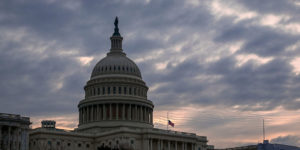 (RNS) — One year ago at the Capitol riot on Jan. 6, 2021, the world witnessed one way in which Christian nationalism imperils American democracy. We’ve all seen photos and footage of the mob violence perpetrated by Americans waving Christian flags, clad in Christian clothing, saying Christian prayers. As some increasingly isolated and radicalized religious conservatives react to their loss of power, the threat of their political violence is real. But it is not the only way Christian nationalism jeopardizes our democracy.
(RNS) — One year ago at the Capitol riot on Jan. 6, 2021, the world witnessed one way in which Christian nationalism imperils American democracy. We’ve all seen photos and footage of the mob violence perpetrated by Americans waving Christian flags, clad in Christian clothing, saying Christian prayers. As some increasingly isolated and radicalized religious conservatives react to their loss of power, the threat of their political violence is real. But it is not the only way Christian nationalism jeopardizes our democracy.
The fact is, Christian nationalist ideology — particularly when it is held by white Americans — is fundamentally anti-democratic because its goal isn’t “government of the people, by the people, and for the people.” Its goal is power. Specifically, power for “true Americans like us,” Christians in an almost ethnic sense, those who belong — the worthy. Stemming from this, the most salient threat white Christian nationalism poses to democracy is that it seeks to undermine the very foundation of democracy itself: voting.
We can see this connection long before the 2020 presidential election or recent efforts to restrict voter access throughout the country. As historian Anthea Butler recounts, at a 1980 conference Paul Weyrich, co-founder of the Moral Majority, spoke about electoral strategy to Christian right leaders including Tim LaHaye, Phyllis Schlafly, Pat Robertson, Jerry Falwell Sr. and then-presidential candidate Ronald Reagan.
Weyrich famously explained:
“Many of our Christians have what I call the goo-goo syndrome. Good government. They want everybody to vote. I don’t want everybody to vote. Elections are not won by a majority of people. They never have been from the beginning of our country and they are not now. As a matter of fact our leverage in the elections quite candidly goes up as the voting populace goes down.”
In Weyrich’s own words, the goal of these Christian right leaders wasn’t more Americans exercising their democratic rights. The goal is “leverage” and, with it, victory. Over the next few decades, Weyrich and other organizations he co-founded, like the American Legislative Exchange Council, tirelessly promoted legislation to restrict voter access, guided by the belief that voting must be controlled, lest the wrong sorts of people determine the outcome.
In a recent study I conducted with co-authors Andrew Whitehead and Josh Grubbs, we documented this same strong connection between Christian nationalist ideology and wanting to limit voter access. We surveyed Americans just before the November 2020 elections and thus before Donald Trump’s “Big Lie” began to dominate the narrative on the right. We use a scale to measure Christian nationalism that includes questions about the extent to which Americans think the government should declare the U.S. a Christian nation, that America’s success is part of God’s plan and other such views.
Even after we accounted for political partisanship, ideological conservatism and a host of other religious and sociodemographic characteristics, Christian nationalist ideology was the leading predictor that Americans felt we already make it “too easy to vote.”
You may ask, “Who exactly is voting too easily?” The obvious answer is the bogeyman trope of fraudulent voters — those pets, dead people and undocumented immigrants Trump warned about in spring 2020. This myth of widespread voter fraud is decades old and has been thoroughly debunked numerous times. Yet, unsurprisingly, we also found that Christian nationalism is the leading predictor that Americans believe “voter fraud in presidential elections is getting rampant these days.” And it bears repeating: Americans who affirm Christian nationalism already felt this way before the 2020 presidential election.
But other evidence suggests Christian nationalism doesn’t just hope to exclude fraudulent voters. For adults who believe America should be a “Christian nation,” their understanding of who should vote is even more narrow. For example, we asked Americans whether they would support a policy requiring persons to pass a basic civics test in order to vote or a law that would disenfranchise certain criminal offenders for life. These questions hark back to arbitrary Jim Crow restrictions white Southerners used before the Voting Rights Act of 1965. Once again, Christian nationalism is the leading predictor that Americans would prefer both restrictions.
But why?
Part of the reason for this is, as Weyrich explained in 1980, electoral leverage. Americans who subscribe to Christian nationalism likely assume persons excluded by civics tests and lifetime felon disenfranchisement (younger Americans and ex-convicts who are disproportionately Black) would be political threats, not allies.
Yet another reason also involves how white Christian nationalists view voting in general. In data we collected in August 2021, we asked Americans to indicate whether they felt voting was a right or a privilege. Though constitutional language repeatedly states voting is a right for citizens, Americans still debate the issue. As I show in Figure 1, the more Americans embrace Christian nationalism, the more likely they are to view voting as a privilege (something that can be extended or taken away) rather than a right (something that shall not be infringed). Indeed, at the extreme end of Christian nationalism, the majority hold this view.
Other evidence beyond voter access suggests Christian nationalism inclines Americans to favor institutional arrangements that preserve their political power. In the same October 2020 survey we used for the earlier study, we found that the more white Americans affirmed Christian nationalist ideology, the more likely they were to reject the popular vote as a means of selecting the president, to favor the Electoral College and to disagree that gerrymandering needed to be addressed to ensure fairer congressional elections (see Figure 2). Why? Almost certainly because these arrangements currently give white, rural, conservative Americans an electoral advantage even when they are numerical minorities. Again, the goal is power, not fairness or democracy.
As scholars of right-wing political movements point out, democracy is gradually eroded under some ideological covering, one that stokes populist anxiety with menacing tropes about cultural decline and justifies anti-democratic tactics to “save” or “restore” the nation — to make the nation great again. In the United States, white Christian nationalism is that ideological covering. In the minds of white Americans who believe America should be for “Christians like us,” increasing ethnic and religious diversity is a threat that must be defeated for God to “shed his grace on thee.”
Moreover, Americans who subscribe to Christian nationalism already thought voter fraud was rampant before November 2020. Today, in the aftermath of Trump’s “Big Lie” about a stolen election, which is still believed by over 80% of the most ardent believers in Christian nationalism, electoral integrity is viewed as hopelessly compromised. Thus, they see restricting voter access to those who prove worthy, and maintaining institutional advantages provided by the Electoral College and gerrymandering, as necessary strategies for preserving power and preventing what they see as their own imminent persecution under a Democratic administration.
The threat of Christian nationalist violence like what we saw on Jan. 6 is real. Yet because such threats are so obvious and shocking, and the role of Christian nationalism in them is so blatant, they make gaslighting about them more challenging. (Though Republican leaders are certainly trying, just the same.) In contrast, the threat of Christian nationalism as an ideological covering for voter suppression is perhaps more destructive because its influence is more subtle and its effects (electoral outcomes) are more consequential. Demagogues like Trump will no longer need to mobilize Christian nationalist violence after an electoral loss once they’ve ensured they’ll never lose in the first place.
(Samuel L. Perry is an associate professor of sociology at the University of Oklahoma. He is the author of two books on Christian nationalism, including the award-winning “Taking America Back for God: Christian Nationalism in the United States” (with Andrew L. Whitehead) and the forthcoming “The Flag and the Cross: White Christian Nationalism and the Threat to American Democracy” (with Philip Gorski). The views expressed in this commentary do not necessarily reflect those of Religion News Service.)
Ahead of the Trend is a collaborative effort between Religion News Service and the Association of Religion Data Archives made possible through the support of the John Templeton Foundation. See other Ahead of the Trend articles here.

 @rachelnoerd pic.twitter.com/NPyYj3lDhu
@rachelnoerd pic.twitter.com/NPyYj3lDhu
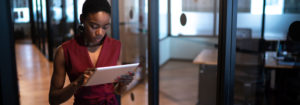

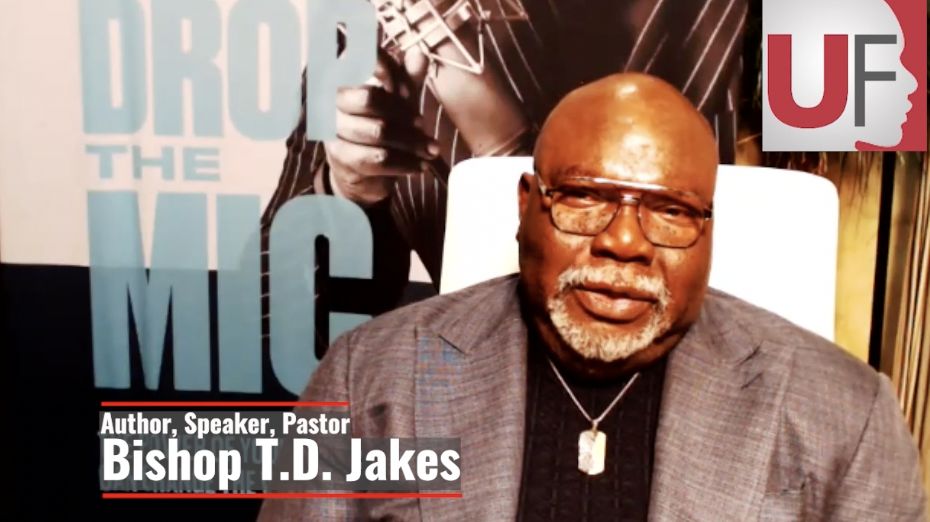
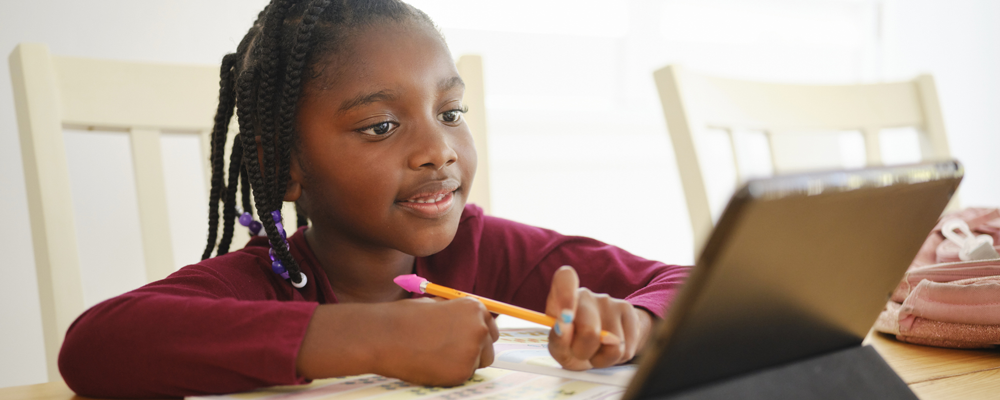

 (RNS) — One year ago at the Capitol riot on Jan. 6, 2021, the world witnessed one way in which Christian nationalism imperils American democracy. We’ve all seen photos and footage of the mob violence perpetrated by Americans waving Christian flags, clad in Christian clothing, saying Christian prayers. As some increasingly isolated and radicalized religious conservatives react to their loss of power, the threat of their political violence is real. But it is not the only way Christian nationalism jeopardizes our democracy.
(RNS) — One year ago at the Capitol riot on Jan. 6, 2021, the world witnessed one way in which Christian nationalism imperils American democracy. We’ve all seen photos and footage of the mob violence perpetrated by Americans waving Christian flags, clad in Christian clothing, saying Christian prayers. As some increasingly isolated and radicalized religious conservatives react to their loss of power, the threat of their political violence is real. But it is not the only way Christian nationalism jeopardizes our democracy.